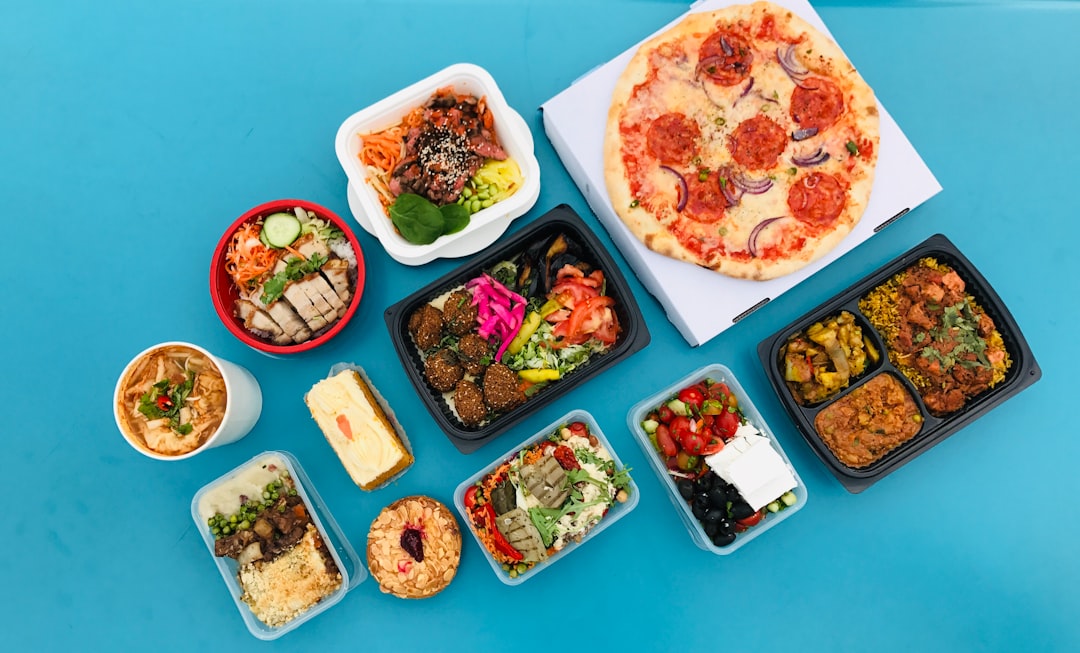
Ultra-processed foods are the worst thing possible for us to eat causing all the chronic illness associated with a poor diet. In fact, ultra-processed foods are that poor diet.
Ultra-processed foods are a concept developed for us to understand that a group of processed food are problematic. Thus, ultra-processed foods are not a fixed idea and the lack of a simple clear definition makes me skeptical of the campaign against ultra-processed foods.
Despite my skepticism, I avoid eating them. Except for chocolate, ice cream and the occasional bag of potato chips, I mostly eat food I have cooked myself. I find processed food products unsatisfactory and they often leave me feeling more empty than from before I ate them.
Definition of Ultra Processed Foods and other Food Groups based on Processing
It is hard to identify ultra-processed foods. A research study showed that trained food professionals didn’t agree as to which food belonged to which of the four processing food groups as designated by the NOVA classification system, which categorizes food into four groups:
Group 1 - Unprocessed or minimally processed foods
Group 2 - Processed culinary ingredients
Group 3 - Processed foods
Group 4 - Ultra-processed food and drink products
The NOVA system refers to commercially manufactured food sold in massive amounts. If you want to know more about this classification system see Monteiro et al., 2019. This classification system is helpful and the explanation of different food groups is very thorough and detailed.
I really wanted to be able to describe each food group in less than twenty words per group. Fortunately Aguayo-Patrón and Calderón de la Barca developed the following schematic for six food groups:
They provided short definitions, explanations and examples for each food group1 with ultra-processed foods defined as "Industrial formulations manufactured mainly from processed food industry ingredients". Examples of ultra-processed food products include ready-to-heat, ready-to-eat or ready-to-drink products like carbonated drinks, sweet or savory snacks, breakfast cereals, fruit yogurt, sausages, hams, instant soups, pre-prepared meals and dishes, infant formulas, and baby food.
Are Ultra-Processed Foods Really Harmful?
There is little debate as to whether heavily processed foods high in sugar, salt and/or fat are harmful as there in many links between their high consumption and the incidence of chronic illnesses like heart disease and diabetes. These food products are deliberately designed to make us want to eat lots of them.
It is easier to say avoid ultra-processed food than say eat more fresh fruits and vegetables, which is beneficial providing fiber, vitamins, and phytochemicals.
Processing
Much of the arguments for ultra-processed food is an argument for processing, which is necessary if we want food that is convenient, cheap, and has a long shelf life. Since they are processed, vitamins, colors and flavors are destroyed and so additives are added back to replace this loss.
Snobbery
I worry that there is some snobbery in the message about ultra-processed food. Fast food, ready-to-eat meals, quick snacks are essential for people with busy lives juggling work, family and other commitments. Many of us don’t have the time to cook, may not even like the extra work converting raw, fresh foods into food, and/or may not have the knowledge to create pleasant easy meals on a regular basis.
Safety
Other than their health affects, ultra-processed foods are safe. In fact their safety is heavily regulated by either FDA or USDA and, therefore, it is closely managed, monitored, and verified by food manufacturers. There are a few contaminated products in the market despite this and more products are recalled once a problem has been found. Food safety consultants, like myself, are constantly vigilant to make sure these problems are limited.

Should You Avoid Ultra-Processed Foods?
I am strongly opposed to giving nutritional advice and, yet, I limit my consumption of processed foods. I also eat lots of fruit and vegetables that I have prepared myself. I’m not going to change my diet after reading about ultra-processed food.
I understand the convenience of fast food, ready-to-eat meals and frozen dinners. Shaming people for eating processed food isn’t going to help change people’s living situations.
You have to decide for yourself the balance between time, cost, and convenience. Perhaps add extra fresh fruit or a salad every so often.
Find joy in your food and if that means eating something ultra-processed, enjoy!
Let me know how you feel about ultra-processed foods in the comments.
Classification of food according to its processing degree:
Unprocessed foods
Definition: Fresh foods directly obtained from plants or animals.
Processing: No industrial processing.
Examples: Fresh fruits, vegetables, meat, eggs, grains and legumes.
Minimally processed foods
Definition: Physical alteration of unprocessed foods.
Processing: Peeling, cutting, drying, pasteurization, refrigeration, freezing, vacuum packing, simple wrapping.
Examples": Chilled, frozen or dried fruits, vegetables, meat and poultry; pasteurized or powdered milk; vegetables or fruit juices without added sugar.
Processed culinary ingredients
Definition: Substances extracted from unprocessed or minimally processed foods used to prepare dishes and meals.
Processing: Pressing, refining, grinding, milling.
Examples: Salt, sugar, flour, vegetable oil, starches, butter, etc.
Processed food industry ingredients
Definition: Substances extracted from unprocessed or minimally processed foods used in the formulation of ultra-processed foods.
Processing: Hydrogenation, hydrolysis, use of enzymes and additives.
Examples: High fructose corn syrup, lactose, milk and soy proteins.
Processed foods
Definition: Products made by adding sugar, salt, oil, fats or other culinary ingredients, to minimally processed foods.
Processing: Preservation or cooking methods, non-alcoholic fermentation.
Examples: Bread, cheese, canned vegetables and legumes, fruits in syrup, salted nuts and seeds, smoked and salted meat.
Ultra-processed foods
Definition: Industrial formulations manufactured mainly from processed food industry ingredients.
Processing: Frying, deep frying, curing, extrusion, molding, extensive use of additives, such as preservatives, colorants, flavorings, non-sugar sweeteners, emulsifiers, etc.
Examples: Ready-to-heat, ready-to-eat or ready-to-drink products like carbonated drinks, sweet or savory snacks, breakfast cereals, fruit yogurt, sausages, hams, instant soups, pre-prepared meals and dishes, infant formulas, baby food.
Who is Cathy Davies?
I write about the intersection of food science and food systems with an emphasis on food safety, food justice and resilience. I am concerned that climate disasters and changing weather patterns are affecting our ability to eat healthy, nutritious food.
I run a food safety consultancy, Food Safety Mid Atlantic, supporting specialty food businesses with their food safety plans and programs. If you are interested in learning more about my consulting services, please schedule a free call.
Please subscribe to Food Crumbs today, if you haven’t already.





